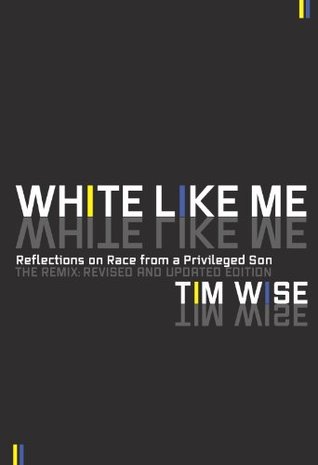More on this book
Community
Kindle Notes & Highlights
“I think they might feel bad about that,” she responded, clearly taking in the point I was hoping for her to see. “I think it would hurt their feelings. I don’t see why they couldn’t just make her look the way she really looked.” “Yeah, that’s a good point,” I replied. “I guess sometimes the people who make the decisions don’t always take everyone’s feelings very seriously, huh?” “Yeah,” she said, dis...
This highlight has been truncated due to consecutive passage length restrictions.
“That can’t be God because God isn’t black. God is white.”
“Life is tragic simply because the earth turns and the sun inexorably rises and sets, and one day, for each of us, the sun will go down for the last, last time. Perhaps the whole root of our trouble, the human trouble is that we will sacrifice all the beauty of our lives, will imprison ourselves in totems, taboos, crosses, blood sacrifices, steeples, mosques, races, armies, flags, nations, in order to deny the fact of death, which is the only fact we have. It seems to me that one ought to rejoice in the fact of death—ought to decide, indeed, to earn one’s death by confronting with passion the
...more
for some, committing to fighting a battle you may never win seems futile. But fighting that battle is what people of color have always done and will continue to do, no matter the outcome. Is it appropriate then for me to say that if the fight wouldn’t end in victory there was no purpose? What would that kind of attitude say to black and brown folks who have always fought injustice as if ending it were possible, but who always knew they might well never see change come about?
What whites have rarely had to think about—because as the dominant group we are so used to having our will be done, with a little effort at least—is that maybe the point is not victory, however much we all wish to see justice attained and injustice routed. Maybe our redemption comes from the struggle itself. Maybe it is in the effort, the striving for equality and freedom, that we become human.
“You do not do the things you do because others will necessarily join you in the doing of them,” he explained, “nor because they will ultimately prove successful. You do the things you do because the things you are doing are right.”
Let’s be honest: there is no such place called “justice,” if by that we envision a finish line, or a point at which the battle is won and the need to continue the struggle is over. After all, even when you succeed in obtaining a measure of justice, you’re always forced to mobilize to defend that which you’ve won. There is no looming vacation. But there is redemption in struggle.
Of course, that there is redemption in struggle, and that victory is only one reason for fighting, only seems to come as a surprise, or rather, as a source of discomfort to white folks. Invariably, it seems it is we in the white community who obsess over our own efficacy and fail to recognize the value of commitment, irrespective of outcome.
People of color, on the other hand, never having been burdened with the illusion that anything they touched would turn to gold, usually take a more reserved, and I would say healthi...
This highlight has been truncated due to consecutive passage length restrictions.
if one is constantly looking for the payoff, but the payoff is slow in coming (as is pretty much always the case), burnout is never too far around the corner. But if we are committed to the struggle because we know that our very humanity depends on it, that the fight for human liberation is among the things that give life meaning, then burnout is far less of a threat.
what is required is that we be prepared to die for our principles if need be, but even more so, to be unafraid to live for them. So let us begin.


